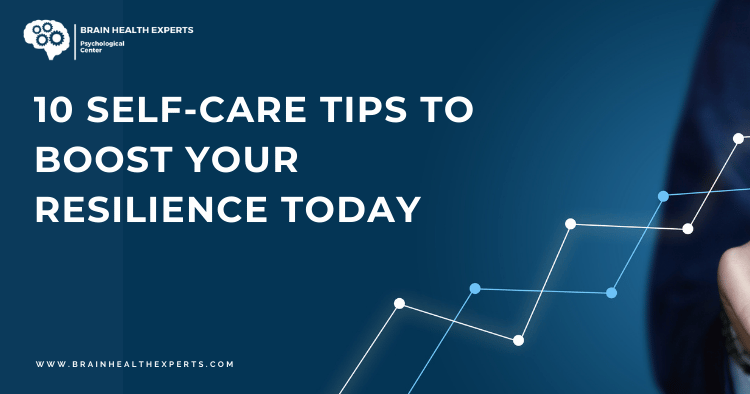- Understanding Resilience
- Why Self-Care Matters
- Tip 1: Prioritize Sleep
- Tip 2: Nourish Your Body
- Tip 3: Stay Active
- Tip 4: Cultivate Mindfulness
- Tip 5: Connect with Nature
- Tip 6: Build a Support System
- Tip 7: Set Boundaries
- Tip 8: Embrace Creativity
- Tip 9: Practice Gratitude
- Tip 10: Seek Professional Help
- Conclusion
Understanding Resilience
Resilience is your ability to bounce back from challenges, setbacks, and stress. It’s not just about enduring tough times; it’s about growing stronger through them. According to the American Psychological Association, resilience involves behaviors, thoughts, and actions that can be learned and developed. The role of self-care in building resilience cannot be overstated, as it lays the groundwork for coping effectively with life’s challenges.
“Resilience is not a trait that you either have or don’t have. It’s a set of skills that you can learn.”
Why Self-Care Matters
Self-care is essential for maintaining mental, emotional, and physical health. It empowers you to take control of your wellbeing, reducing stress and anxiety, which are often barriers to resilience. By prioritizing self-care, you build a strong foundation that can help you face life’s challenges with confidence. Explore how positive thinking can further enhance your self-care routine by visiting 10 Ways Positive Thinking Boosts Emotional Well-Being.
“Self-care is not a luxury; it is a necessity.”
Tip 1: Prioritize Sleep
Sleep is essential for cognitive function and emotional regulation. According to the National Sleep Foundation, adults need between 7-9 hours of sleep per night. Lack of sleep can lead to irritability and reduced resilience. To improve your sleep:
- Create a bedtime routine.
- Limit screen time before bed.
- Keep your bedroom dark and cool.
Sleep Tips Table
| Tip | Description |
|---|---|
| Set a Schedule | Go to bed and wake up at the same time daily. |
| Create a Relaxing Atmosphere | Use calming scents and dim lights. |
| Avoid Stimulants | Limit caffeine and nicotine in the evening. |
“Quality sleep is the foundation for a resilient mind.”
Tip 2: Nourish Your Body
Food fuels your body and mind. A balanced diet rich in whole foods can enhance your mood and energy levels, making you more resilient. Incorporate fruits, vegetables, whole grains, and lean protein into your meals.
Recommended Foods for Resilience
- Omega-3 Fatty Acids: Found in fish, walnuts, and flaxseeds, omega-3s help reduce anxiety.
- Antioxidants: Fruits like blueberries and vegetables like spinach can protect against oxidative stress.
For insights on how positive thinking can transform your overall health, check out 10 Ways Positive Thinking Boosts Physical Health.
“Let food be thy medicine and medicine be thy food.”
Tip 3: Stay Active
Regular physical activity is a powerful tool for enhancing resilience. Exercise releases endorphins, which boost your mood and reduce stress. Aim for at least 150 minutes of moderate aerobic activity each week.
Simple Ways to Stay Active
- Take brisk walks during breaks.
- Try yoga or tai chi for mindfulness and movement.
- Join a local sports team or fitness class.
“Movement is a medicine for creating change in a person’s physical, emotional, and mental states.”
Tip 4: Cultivate Mindfulness
Mindfulness practices, such as meditation or deep-breathing exercises, can significantly enhance your resilience. They help you stay grounded and focused, even during stressful times.
Mindfulness Techniques
- Meditation: Spend a few minutes each day focusing on your breath.
- Journaling: Write down your thoughts and feelings to process them better.
For more mindfulness practices, consider the techniques discussed in 10 Mindfulness Practices to Boost Your Resilience Today.
“Mindfulness is the art of being fully present in the moment.”
Tip 5: Connect with Nature
Spending time outdoors can boost your mental health and resilience. Nature has a calming effect, reducing stress and anxiety. Aim to spend at least 20 minutes outside daily.
Benefits of Nature Connection
- Improved mood and emotional health.
- Enhanced focus and cognitive function.
- Increased physical activity opportunities.
“In every walk with nature, one receives far more than he seeks.”
Tip 6: Build a Support System
A strong support network can help you navigate life’s challenges. Surround yourself with friends and family who uplift you. Don’t hesitate to seek help when you need it.
How to Build Your Support System
- Join community groups that align with your interests.
- Reach out to friends for regular catch-ups.
- Consider joining support groups if you’re facing specific challenges.
For further insights on how positive relationships influence resilience, visit 10 Ways Positive Thinking Boosts Relationships.
“Surround yourself with those who lift you higher.”
Tip 7: Set Boundaries
Setting healthy boundaries is crucial for maintaining your mental health. It allows you to protect your time and energy, making it easier to bounce back from stressors.
Boundary-Setting Tips
- Learn to say no to commitments that drain you.
- Communicate your needs clearly to others.
- Schedule personal time for self-care activities.
“Boundaries are a part of self-care. They are healthy, normal, and necessary.”
Tip 8: Embrace Creativity
Engaging in creative activities can be incredibly therapeutic. Whether it’s painting, writing, or playing an instrument, expressing yourself creatively can help you process emotions and reduce stress.
Creative Outlets to Explore
- Painting or drawing.
- Creative writing or poetry.
- Playing a musical instrument.
“Creativity takes courage.”
Tip 9: Practice Gratitude
Gratitude shifts your focus from what’s wrong to what’s right in your life. Keeping a gratitude journal can enhance your outlook and resilience. Aim to write down three things you’re grateful for each day.
Benefits of Practicing Gratitude
- Improved mental health and reduced stress.
- Increased resilience and adaptability.
- Greater satisfaction in relationships.
For more on how gratitude practices can enhance mental wellbeing, see 10 Simple Gratitude Practices to Boost Positive Thinking.
“Gratitude turns what we have into enough.”
Tip 10: Seek Professional Help
Sometimes, the challenges you face may feel overwhelming. Seeking help from a mental health professional is a sign of strength, not weakness. Therapy can provide you with tools to build resilience and cope with stress.
When to Seek Help
- Persistent feelings of sadness or hopelessness.
- Difficulty coping with daily responsibilities.
- Experiencing significant life changes or trauma.
“Seeking help is a sign of strength, not weakness.”
Conclusion
Building resilience takes time and practice, but prioritizing self-care is a vital step in the right direction. Implementing these tips can help you not only withstand life’s challenges but also emerge stronger and more capable. Remember, you’re not alone on this journey. By nurturing your mind and body, you’re investing in a more resilient future.
For additional resources on mental health and resilience, consider visiting MentalHealth.gov. Here’s to your journey towards improved resilience through self-care!





